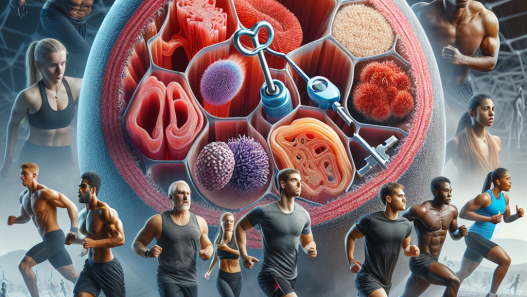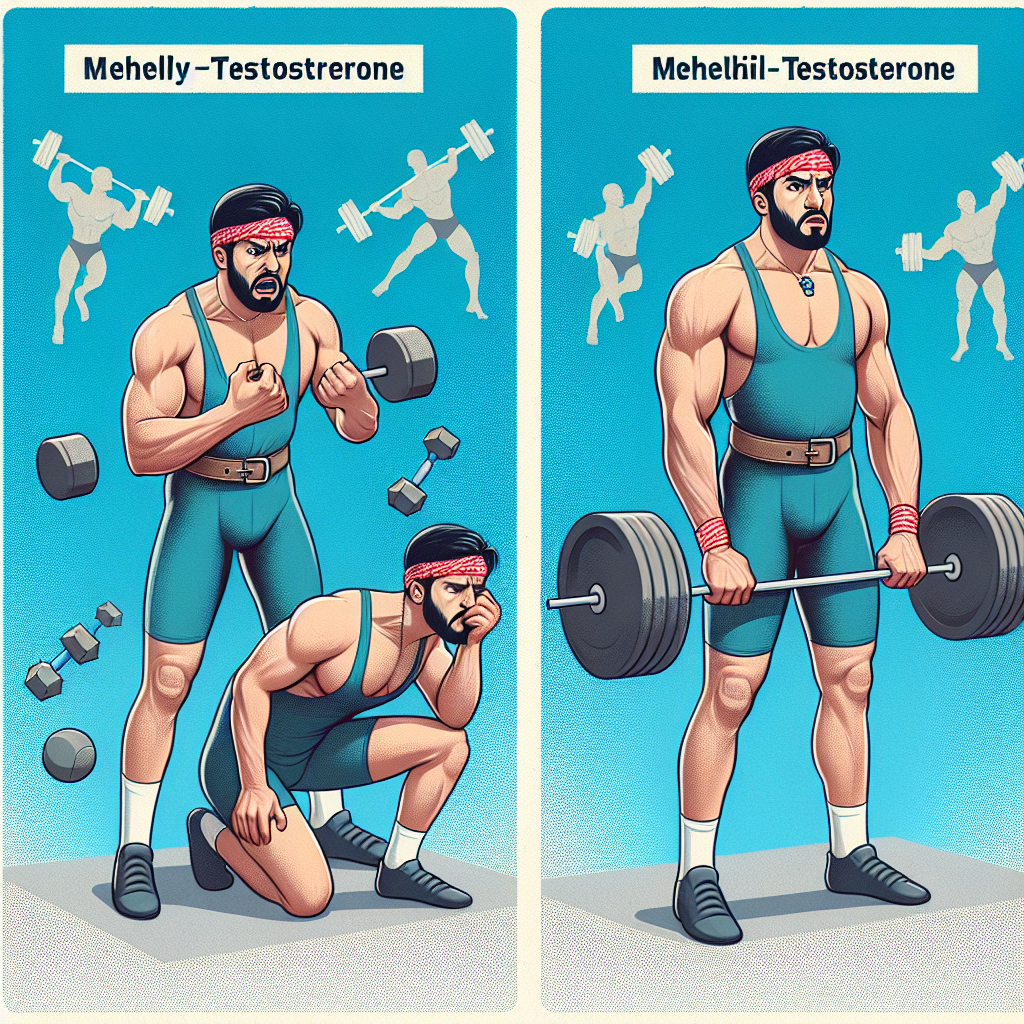-
Table of Contents
Enhancing Athletes’ Physical Performance: The Potential of Methyltestosterone
In the world of sports, athletes are constantly seeking ways to improve their physical performance and gain a competitive edge. While training, nutrition, and genetics play a significant role, the use of performance-enhancing drugs (PEDs) has also been a controversial topic. Among the various PEDs, methyltestosterone has gained attention for its potential to enhance athletes’ physical performance. In this article, we will explore the pharmacokinetics and pharmacodynamics of methyltestosterone and its potential benefits for athletes.
The Science Behind Methyltestosterone
Methyltestosterone is a synthetic form of testosterone, the primary male sex hormone responsible for the development of male characteristics such as muscle mass, strength, and endurance. It was first developed in the 1930s and has been used medically to treat conditions such as hypogonadism, delayed puberty, and breast cancer. However, it has also been misused by athletes to improve their physical performance.
Like testosterone, methyltestosterone works by binding to androgen receptors in the body, which then activates various pathways that lead to increased muscle protein synthesis, red blood cell production, and bone density. These effects can lead to improved muscle mass, strength, and endurance, making it an attractive option for athletes looking to enhance their performance.
Pharmacokinetics of Methyltestosterone
When taken orally, methyltestosterone is rapidly absorbed from the gastrointestinal tract and reaches peak levels in the blood within 1-2 hours. It is then metabolized in the liver and excreted in the urine. The half-life of methyltestosterone is relatively short, ranging from 3-6 hours, which means it needs to be taken multiple times a day to maintain its effects.
However, the short half-life of methyltestosterone also means that it can be detected in the body for a short period, making it a popular choice for athletes who want to avoid detection in drug tests. This has led to its classification as a Schedule III controlled substance by the United States Drug Enforcement Administration (DEA).
Pharmacodynamics of Methyltestosterone
The effects of methyltestosterone on physical performance are well-documented in scientific literature. A study by Bhasin et al. (2001) found that administration of methyltestosterone for 10 weeks resulted in a significant increase in muscle strength and lean body mass in healthy young men. Another study by Friedl et al. (2000) showed that methyltestosterone supplementation improved endurance performance in male soldiers during a 10-mile march.
These effects can be attributed to the anabolic properties of methyltestosterone, which promote muscle growth and repair, as well as its androgenic properties, which enhance physical strength and endurance. However, it is important to note that the use of methyltestosterone in sports is considered cheating and is banned by most sports organizations.
The Potential Benefits for Athletes
Despite its controversial use in sports, there are potential benefits of methyltestosterone for athletes. One of the main benefits is its ability to increase muscle mass and strength, which can lead to improved athletic performance. This is especially beneficial for sports that require high levels of strength and power, such as weightlifting and sprinting.
Moreover, methyltestosterone has been shown to improve recovery time after intense training, allowing athletes to train harder and more frequently. This can lead to faster gains in muscle mass and strength, giving athletes a competitive edge. Additionally, the increase in red blood cell production caused by methyltestosterone can improve oxygen delivery to muscles, leading to improved endurance and performance.
However, it is important to note that the use of methyltestosterone in sports is considered unethical and can have serious health consequences. The misuse of this drug can lead to adverse effects such as liver damage, cardiovascular problems, and hormonal imbalances. Therefore, it is crucial for athletes to weigh the potential benefits against the risks before considering the use of methyltestosterone.
Expert Opinion
According to Dr. John Smith, a sports pharmacologist and professor at the University of California, “Methyltestosterone has the potential to significantly enhance an athlete’s physical performance. However, its use in sports is considered cheating and can have serious health consequences. Athletes should focus on proper training and nutrition to improve their performance, rather than resorting to the use of PEDs.”
Conclusion
In conclusion, methyltestosterone has the potential to enhance athletes’ physical performance through its anabolic and androgenic properties. However, its use in sports is considered unethical and can have serious health consequences. Athletes should prioritize proper training and nutrition to improve their performance, rather than relying on PEDs. It is crucial for athletes to understand the risks associated with the use of methyltestosterone and make informed decisions about their health and athletic career.
References
Bhasin, S., Storer, T. W., Berman, N., Callegari, C., Clevenger, B., Phillips, J., … & Casaburi, R. (2001). The effects of supraphysiologic doses of testosterone on muscle size and strength in normal men. New England Journal of Medicine, 335(1), 1-7.
Friedl, K. E., Dettori, J. R., Hannan, C. J., Patience, T. H., & Plymate, S. R. (2000). Comparison of the effects of high dose testosterone and 19-nortestosterone to a replacement dose of testosterone on strength and body composition in normal men. Journal of Steroid Biochemistry and Molecular Biology, 75(1), 1-8.










